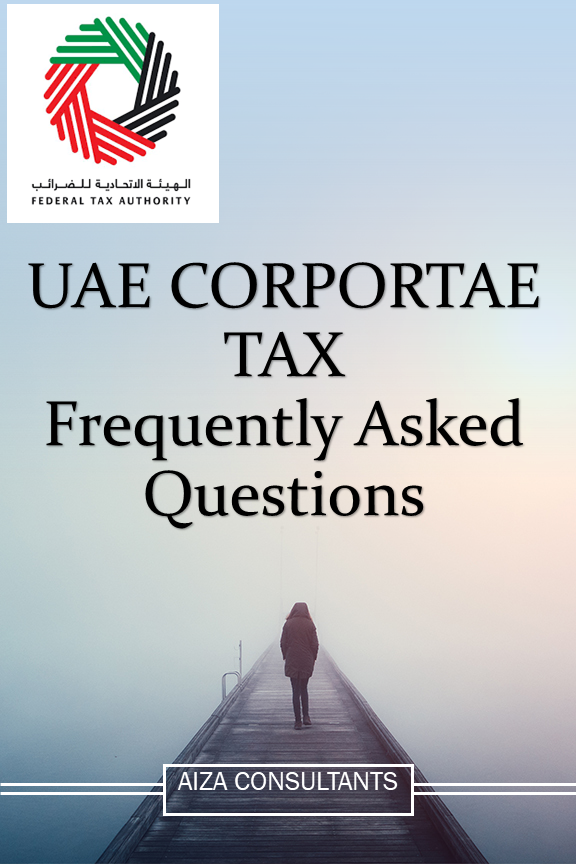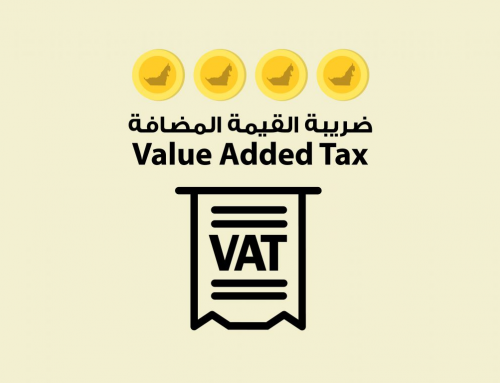What is Corporate Tax?
Corporate Tax is a form of direct tax levied on the net income or profit of corporations and other businesses.
Corporate Tax is sometimes also referred to as “Corporate Income Tax” or “Business Profits Tax” in other jurisdictions.
When will the UAE Corporate Tax regime become effective?
The UAE Corporate Tax regime will become effective for financial years starting on or after 1 June 2023.
Examples:
- A business that has a financial year starting on 1 July 2023 and ending on 30 June 2024 will become subject to UAE Corporate Tax from 1 July 2023 (which is the beginning of the first financial year that starts on or after 1 June 2023).
- A business that has a (calendar year) financial year starting on 1 January 2023 and ending on 31 December 2023 will become subject to UAE Corporate Tax from 1 January 2024 (which is the beginning of the first financial year that starts on or after 1 June 2023).
Who will be subject to UAE Corporate Tax?
UAE Corporate Tax will apply to all UAE businesses and commercial activities alike, except for the extraction of natural resources, which will remain subject to Emirate level corporate taxation.
How do you determine whether a legal entity has a “business” that will be within the scope of UAE Corporate Tax?
All activities undertaken by a legal entity will be deemed “business activities” and hence be within the scope of UAE Corporate Tax.
How do you determine whether an individual has a “business” that will be within the scope of UAE Corporate Tax?
This would generally be done by reference to the individual having (or being required to obtain) a business license or permit to carry out the relevant commercial, industrial and/or professional activity in the UAE.
How do you determine the business profit / income that will be subject to UAE Corporate Tax?
The taxable income will be the accounting net profit of a business, after making adjustments for certain items to be specified under the UAE Corporate Tax law.
The accounting net profit of a business is the amount reported in the financial statements prepared in accordance with internationally acceptable accounting standards.
What will the UAE Corporate Tax rates be?
The Corporate Tax rates are:
- 0% for taxable income up to AED 375,000;
- 9% for taxable income above AED 375,000; and
Will an individual’s salary income be subject to UAE Corporate Tax?
UAE Corporate Tax will not apply on an individual’s salary and other employment income (whether received from the public or private sector).
Will an individual who has a commercial license to carry out business in the UAE be subject to UAE Corporate Tax?
Business income earned under a commercial license will be within the scope of UAE Corporate Tax.
Will an individual who invests in UAE real estate be subject to UAE Corporate Tax?
The investment in real estate by individuals in their personal capacity should not be subject to UAE Corporate Tax provided the individual is not required to obtain a commercial license or permit to carry out such activity in the UAE.
Will an individual be subject to Corporate Tax on investment returns?
Individuals will not be subject to UAE Corporate Tax on dividends, capital gains and other income earned from owning shares or other securities in their personal capacity.
Will the income earned by a freelance professional be subject to UAE Corporate Tax?
UAE Corporate Tax will generally apply to income earned from activities carried out under a freelance license / permit, albeit no Corporate Tax will be payable unless the annual net income of the freelance professional exceeds AED 375,000.
Will income earned by an individual from bank deposits be subject to UAE Corporate Tax?
Interest and other income earned by an individual from bank deposits or saving schemes will not be subject to UAE Corporate Tax.
If a business has earned taxable income of AED 400,000 in a given financial year, what will be the UAE Corporate Tax amount payable?
The Corporate Tax liability will be calculated as follows:
- Taxable income of AED 0 – AED 375,000 at 0% = AED 0.
- Portion of taxable income exceeding AED 375,000 (i.e. AED 400,000 – AED 375,000 = AED 25,000) at 9% = AED 2,250.
The UAE Corporate Tax liability for the year will be AED 0 + AED 2,250 = AED 2,250.
The final amount of UAE Corporate Tax payable will be reduced by any foreign taxes incurred on the relevant income (see below under ‘Tax Credits’ section).
Will any income be exempt from UAE Corporate Tax?
Dividends and capital gains earned by a UAE business from its qualifying shareholdings will be exempt from UAE Corporate Tax.
What is a ‘qualifying’ shareholding?
A qualifying shareholding refers to an ownership interest in a UAE or foreign company that meets certain conditions to be specified in the UAE Corporate Tax law.
Will a foreign company or individual be subject to UAE Corporate Tax?
Foreign entities and individuals will be subject to UAE Corporate Tax only if they conduct a trade or business in the UAE in an ongoing or regular manner.
Will income earned by a foreign investor be subject to UAE Corporate Tax?
UAE Corporate Tax will generally not be levied on a foreign investor’s income from dividends, capital gains, interest, royalties and other investment returns.
Will a free zone business be subject to UAE Corporate Tax?
Free zone businesses will be subject to UAE Corporate Tax, but the UAE Corporate Tax regime will continue to honour the Corporate Tax incentives currently being offered to free zone businesses that comply with all regulatory requirements and that do not conduct business with mainland UAE.
Will a free zone business be required to register and file a Corporate Tax return?
A business established in a free zone will be required to register and file a Corporate Tax return.
Further details on the compliance obligations of free zone businesses will be provided in due course.
Will the UAE Corporate Tax treatment be different for a free zone business established in a financial free zone?
The UAE Corporate Tax treatment that will apply to businesses in free zones will be the same across all free zones.
Will the oil and gas sector and other extractive industries be subject to the UAE Corporate Tax regime?
Businesses engaged in the extraction of natural resources will remain subject to Emirate level corporate taxation and be outside the scope of the UAE Corporate Tax.
Will the banking sector be subject to the UAE Corporate Tax regime?
Banking operations will be subject to UAE Corporate Tax.
Further details on the current Emirate level corporate taxation will be provided in due course.
Will the real estate sector be subject to the UAE Corporate Tax regime?
Businesses engaged in real estate management, construction, development, agency and brokerage activities will be subject to UAE Corporate Tax.
Will the UAE Corporate Tax regime allow prior year losses to reduce future taxable income?
The UAE Corporate Tax regime will allow a business to use losses incurred (as from the UAE Corporate Tax effective date) to offset taxable income in subsequent financial periods.
A loss for Corporate Tax purposes (tax loss) would arise when the total deductions the businesses can claim are greater than the total income for the relevant financial period.
Will excess Corporate Tax losses be allowed to be carried forward and used in future years?
Excess tax losses may be carried forward and used against taxable income in future years, provided certain conditions are met.
Will a group be able to utilise the tax losses of one group company against the taxable income of another group company?
Tax losses from one group company may be used to offset taxable income of another group company, provided certain conditions are met.
Will a group of UAE companies be able to form a “fiscal unity” for UAE Corporate Tax purposes?
A UAE group of companies can elect to form a tax group and be treated as a single taxable person, provided certain conditions are met.
A UAE tax group will only be required to file a single tax return for the entire group.
Will foreign Corporate Tax paid on UAE taxable income be recognised under the UAE Corporate Tax regime?
Foreign Corporate Tax paid on UAE taxable income will be allowed as a tax credit against the UAE Corporate Tax liability.
How often will UAE businesses need to file a UAE Corporate Tax return?
Only one Corporate Tax return will need to be filed per financial period. No provisional or advance Corporate Tax filings will be required.
A financial period is generally a year.
Will the Corporate Tax return need to be filed electronically?
The Corporate Tax return will need to be filed electronically. Further guidance will be issued in this regard in due course.
Will businesses be required to pay tax in advance?
UAE businesses will not be required to make advance UAE Corporate Tax payments.
Are there any consequences for non-compliance under the Corporate Tax regime?
Similar to other taxes in the UAE (e.g. VAT), businesses will be subject to penalties for non-compliance with the Corporate Tax regime. Further information on the UAE Corporate Tax compliance obligations and applicable penalties will be released in due course.



